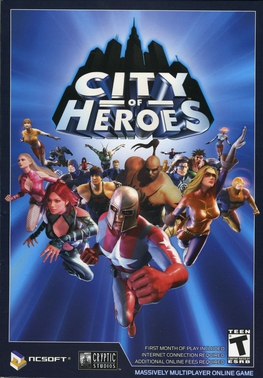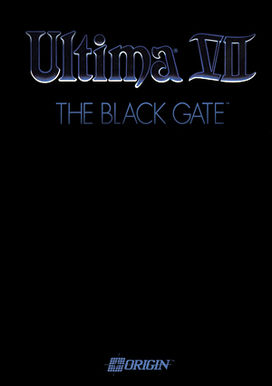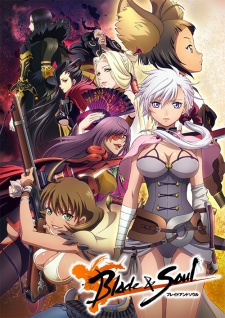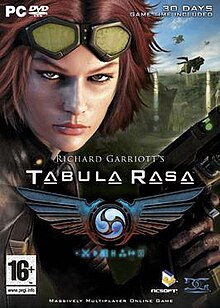Lord British, or Lord Cantabrigian British, is the fictional ruler of Britannia, a kingdom in the fictional world of Sosaria, created by Richard Garriott for his video game series Ultima.
RuneScape is a fantasy massively multiplayer online role-playing game (MMORPG) developed and published by Jagex, released in January 2001. RuneScape was originally a browser game built with the Java programming language; it was largely replaced by a standalone C++ client in 2016. The game has had over 300 million accounts created and was recognised by the Guinness World Records as the largest and most-updated free MMORPG.

Richard Allen Garriott is a British-born American video game developer, entrepreneur and private astronaut.

Destination Games was an American computer game development company created in April 2000 by Richard Garriott, Robert Garriott and Starr Long, following their departure from Origin Systems.

NCSoft Corporation is a South Korean video game developer and publisher headquartered in Pangyo, Seongnam, South Korea, primarily known for the distribution of massively multiplayer online role-playing games such as Lineage and Guild Wars.

City of Heroes (CoH) is a massively multiplayer online role-playing game developed by Cryptic Studios and published by NCSOFT. The game was launched in North America on April 28, 2004, and in Europe by NCsoft Europe on February 4, 2005, with English, German and French servers. In the game, players created super-powered player characters that could team up with others to complete missions and fight criminals belonging to various gangs and organizations in the fictional Paragon City.
Guild Wars is an online role-playing game franchise developed by ArenaNet and published by NCSoft. The games were critically well received and won many editor's choice awards, as well as awards such as "Massively Multiplayer/Persistent World Game of the Year" by the Academy of Interactive Arts & Sciences, as well as Best Value, Best Massively Multiplayer Online Role-Playing Game (MMORPG), and Best Game. Guild Wars was noted for being the "first major MMO to adopt a business model not based on monthly subscription fees", its instanced approach to gameplay, and the quality of the graphics and play for computers with low specifications. In April 2009, NCSoft announced that 6 million units of games in the Guild Wars series had been sold. The sequel and fourth major entry into the series, Guild Wars 2, was announced in March 2007 and released on August 28, 2012. It features updated graphics and gameplay mechanics, and continues the original Guild Wars tradition of no subscription fees. The Guild Wars series had sold 11.5 million copies by August 2015
Ultima Worlds Online: Origin (UWO:O) — originally titled Ultima Online 2 (UO2) — was to be the first sequel to the popular 1997 massively multiplayer online role-playing game Ultima Online. Origin Systems revealed that they were developing UO2 in September 1999 for release within a year or two, but development was cancelled on March 21, 2001.

Ultima IV: Quest of the Avatar, first released in 1985 for the Apple II, is the fourth in the series of Ultima role-playing video games. It is the first in the "Age of Enlightenment" trilogy, shifting the series from the hack and slash, dungeon crawl gameplay of its "Age of Darkness" predecessors towards an ethically-nuanced, story-driven approach. Ultima IV has a much larger game world than its predecessors, with an overworld map sixteen times the size of Ultima III and puzzle-filled dungeon rooms to explore. Ultima IV further advances the franchise with dialog improvements, new means of travel and exploration, and world interactivity.

Ultima VII: The Black Gate is the seventh installment of the Ultima series of role-playing video games, released in April 1992. In it, the player returns as The Avatar, a would-be paragon of moral virtue who faces down many dangers and deceptions in order to cleanse the medieval fantasy world of Britannia of assorted plots and schemes, monster infestations, and the undermining of crown authority.

Auto Assault was a massively multiplayer online game, developed by NetDevil and published by NCSOFT. It combined vehicular combat with role-playing elements, allowing the player to explore a post-apocalyptic future in customizable cars, motorcycles, semis, and tanks. It took inspiration, in part, from the Mad Max series of films.
Dungeon Runners was a medieval fantasy, often satirical MMORPG developed and published by NCSOFT. It featured gameplay similar to the Diablo series of games.

Aion: The Tower of Eternity is a massively multiplayer online role-playing game (MMORPG) developed and published by the South Korean company NCSoft. The game combines PvP and PvE in a fantasy game environment. As of May 2009, Aion had 3.5 million subscribers in Asia. AION's first major expansion pack was released to North America and Europe on September 7, 2010 under the name Aion: Assault on Balaurea. Truly Free launched on April 11, 2012 with no restrictions. The second major expansion was released in North America on June 26, 2013 under the name Aion: Dark Betrayal. Its most recent expansion was launched on July 13, 2016 under the name Aion: Echoes of Eternity.

Guild Wars is a multiplayer online action role-playing game developed by ArenaNet, a subsidiary of South Korean game publisher NCSOFT, and released in 2005. As the original installment of the Guild Wars series, its campaign was retroactively titled Prophecies to differentiate it from the content of subsequent releases. The game contains a co-operative role-playing portion and a competitive Player versus Player (PvP) portion. In PvP, players may use either their co-operative characters or PvP-exclusive characters who are inherently maximum level and have account-based access to unlocked content.

Champions Online is a free-to-play superhero-themed massively multiplayer online role-playing game (MMORPG) developed by Cryptic Studios. The game is based on the Champions license and its ruleset is loosely based on the HERO System The Game has been released on Steam and Microsoft Windows.

Blade & Soul is a Wuxia-themed massively multiplayer online role-playing game developed by Korean NCSoft. Blade & Soul was released in Western territories on January 19, 2016. A Japanese animated television adaptation aired in 2014 from April 3 to June 26 on TBS and other stations.

Portalarium, Inc. was a video game developer based in Austin, Texas that was formed in September 2009 by Richard Garriott, together with his longtime game industry partners, Dallas Snell and Fred Schmidt. Portalarium marks Richard Garriott's first return to the video game industry since the release of his 2007 title Tabula Rasa. The name "Portalarium," as well as the company's motto, "We take you there," are intended as a continuity and reference to Garriott's prior two companies' names and respective mottoes; Origin Systems, "We Create Worlds," and Destination Games, "We have arrived."

Starr McAuley Long is an American game developer, a long time collaborator with Richard Garriott at the companies Origin Systems (1992–2000), Destination Games (2000–2008), and Portalarium (2013–present). In 1997, Long was the original director of the early graphical multiplayer game Ultima Online, and from 2008–2013 he was executive producer at The Walt Disney Company, where he created and managed several educational games and apps for Club Penguin and the Disney Connected Learning platform. In early 2008, he was listed as one of the Top 20 Most Influential People in the MMO industry. In 2013, he again partnered with Garriott at Portalarium, where they began working on a new game Shroud of the Avatar.

Master X Master (MXM) was a multiplayer online battle arena (MOBA) video game developed and published by NCsoft.














